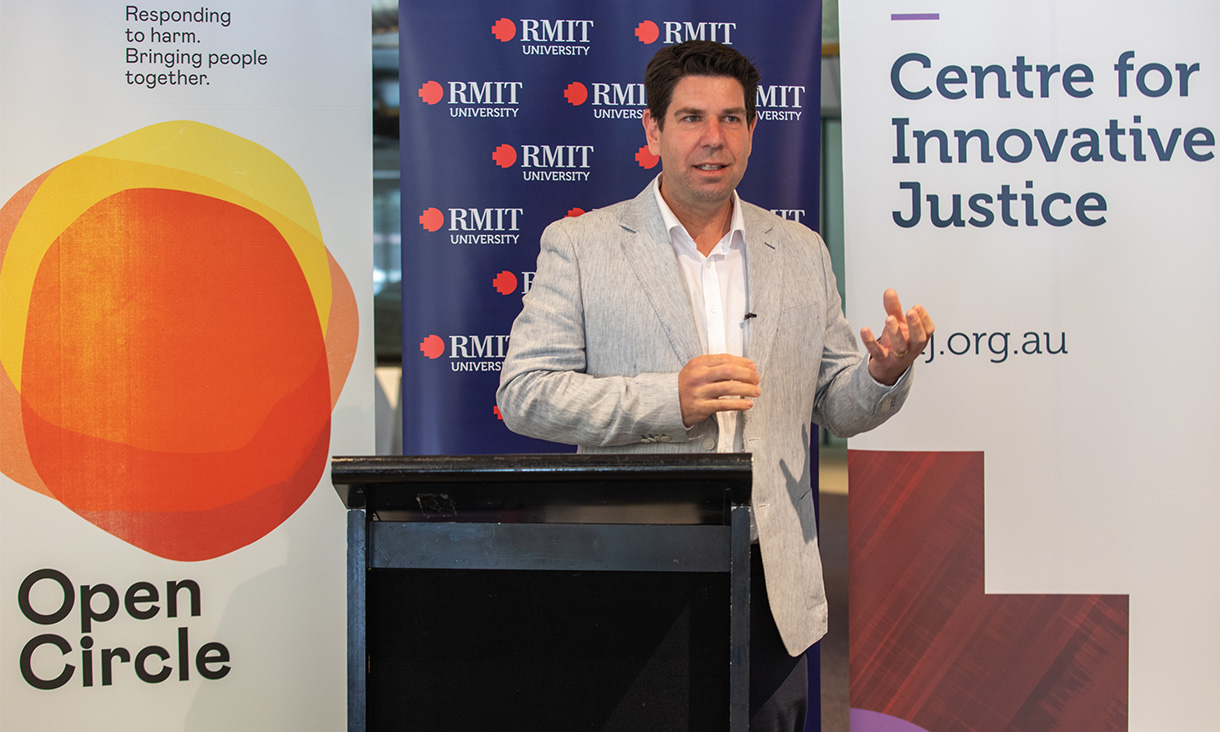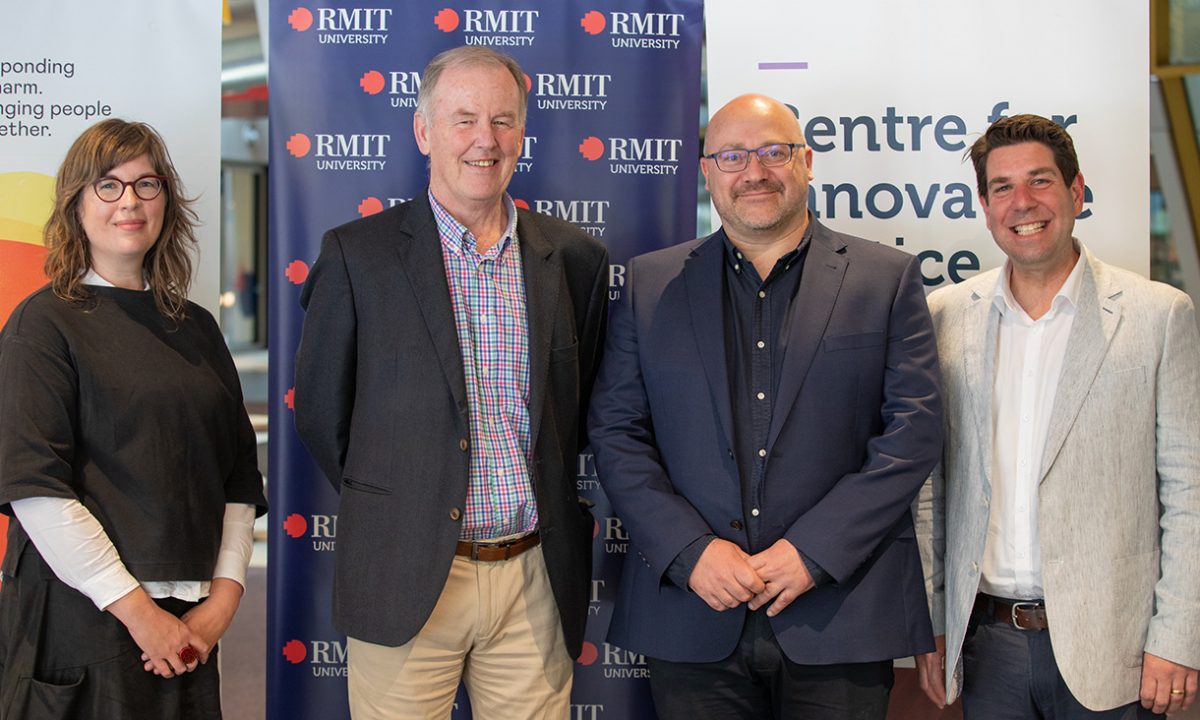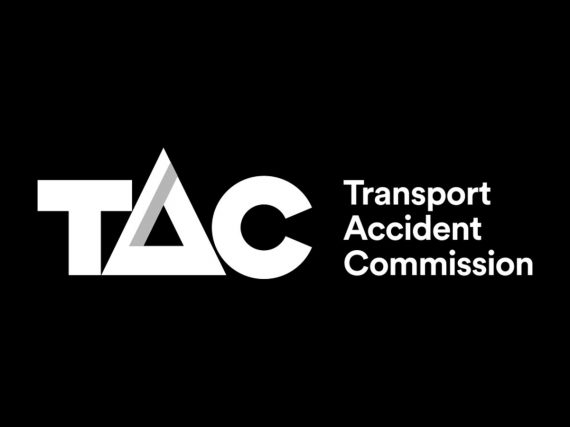$1.5m boost for innovative road trauma recovery program
The recovery journey of Victorians impacted by road trauma is set to be improved thanks to a ground-breaking new partnership between RMIT and the Transport Accident Commission.
CIJ's Nareeda Lewers, Rob Hulls and Stan Winford with TAC's Damian Poel
A $1.5-million agreement between the Transport Accident Commission (TAC) and RMIT will see the University’s Centre for Innovative Justice (CIJ) deliver ongoing restorative justice services for people directly or indirectly affected by road trauma.
The innovative program will provide people with avenues to have their ‘justice needs’ met by offering a safe process to bring people together to have a facilitated dialogue. This could involve supporting people who have been injured, or family members of someone who has died, to meet with the driver responsible for the harm.
The new agreement follows a successful two-year pilot of the restorative justice culpable driving program, with participants reporting positive experiences that aided their recovery.

TAC Head of Complex Recovery & Serious Injury, Damian Poel
TAC CEO Joe Calafiore said it was a ground-breaking new agreement, which would see the services expanded and offered for at least the next three years.
“Every day at the TAC we see the significant harm that road trauma causes and we know that, in order to recover, there are many people who have justice needs beyond what we can provide through our scheme,” Mr Calafiore said.
“Our partnership with RMIT’s Centre for Innovative Justice in delivering this program has enormous potential to help more of our clients meet their needs and assist in getting their lives back on track,” he said.
While the TAC already provides compensation and support for clients such as medical, financial and therapy, if clients have unmet justice needs as a result of road trauma, it can be a significant barrier in their recovery.
Centre for Innovative Justice Director Rob Hulls said that restorative engagement could address certain justice needs that can’t be met by legal processes, financial payments, counselling and medical treatment.
Mr Hulls said people who retained a sense of injustice about their trauma had poorer health and recovery outcomes than those who did not hold those attitudes.
”Our research has shown that restorative justice practices can help people impacted by road trauma in their recovery journey,” Hulls said.
“We are incredibly proud to be partnering with the TAC to better meet the needs of clients and help them heal.”
The TAC’s investment in the program will see it resourced by RMIT with expert full-time facilitators and management, while it will be accessible via a referral pathways program, and independently evaluated.
Story: Louisa Ragas




